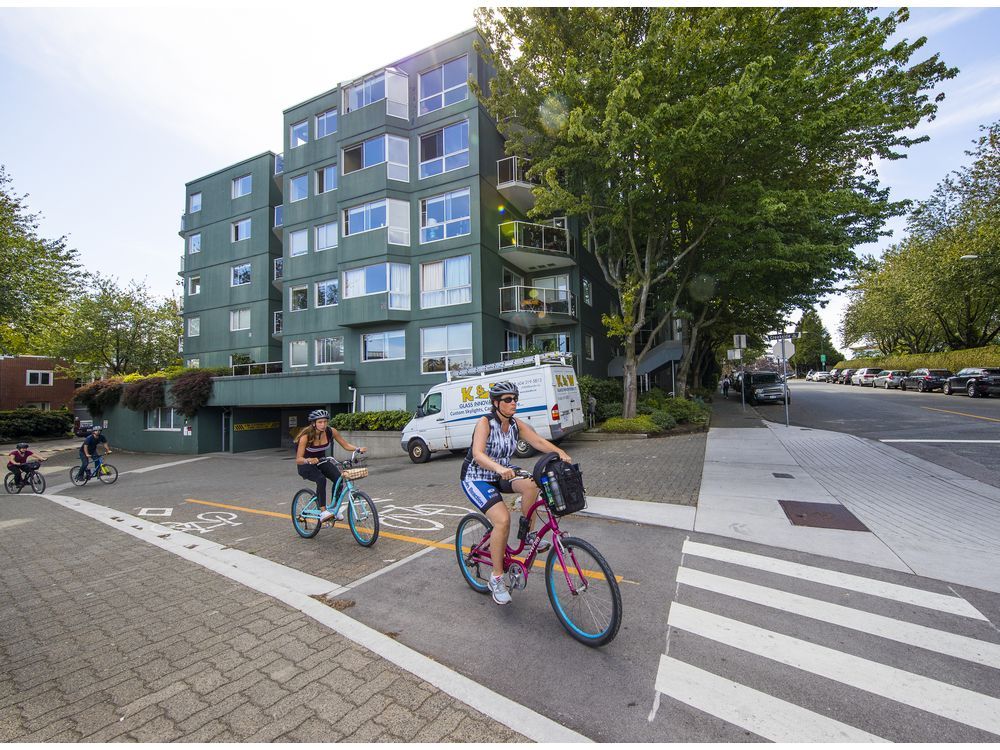Dan Fumano: Uncertainty looms for thousands of co-op home households in Vancouver

Credit to Author: Dan Fumano| Date: Fri, 06 Sep 2019 02:06:28 +0000
In Vancouver, where slightly more than half of households are renters, many people have had rocky relationships with their landlords. But Debby Meyer is disappointed to have found herself in that situation when her landlord is, effectively, the City of Vancouver.
“They’re not answering the calls, let’s just say,” Meyer said. “They’ve ghosted us.”
Meyer lives in one of the 4,000 or so co-op homes built on leased city-owned land. Like many of those residents, she’s been living with anxiety lately as many leases are set to expire.
Meyer’s experience in her building, where residents pay rent depending on their income, illustrates why many housing experts say co-op living is a model to be expanded. She lived on subsidized rent as a single mother of three and as a part-time student, then paid full rent while working as a teacher. Today, in retirement, her pension means she doesn’t need a subsidy. As Meyer’s children aged, she went from a three-bedroom unit, to two bedrooms then to a one-bedroom. All in the same building.
“All of these years, I never had to worry where my family would live,” Meyer said. “It gave a stability to our lives.”
Meyer, who turns 70 this year, feels “blessed” to have spent half her life in her co-op. But it’s stressful there now, she said, with her co-op’s lease with the city expiring within five years.
Individual co-ops and organizations like the Co-operative Housing Federation of B.C. have been asking the city for years to extend the leases, but say there’s been no significant progress, even in the 2½ years since Vancouver’s previous council authorized staff to negotiate extensions for the first group of leases to expire.
Debby Meyer and Clara Salamanca discuss the benefits of being in co-op housing.
The city has been working on a new public discussion paper on lease renewals, which co-op residents and advocates expected to be released in July. The city says that paper is now expected in the fall.
The delays worry co-op residents because the clock keeps ticking on their leases.
There was optimism in February 2017, when Vancouver’s previous council unanimously adopted key terms and conditions for “lease extensions or modification agreements for sustainable affordable co-op housing on city land.”
The report authorized staff to negotiate lease extensions starting with seven co-ops around Vancouver identified as “priority sites.”
Marina Co-op in False Creek South is one of those priority site, as the lease expires in January 2022. For residents like Jessica Kruger, the optimism following the 2017 resolution has been replaced by a growing unease. A wheelchair user, Kruger says an accessible home “is an even harder commodity to find in the city, let alone at an affordable price.”
“We’re two years out,” Kruger said. “It could easily take me that long to find me something that could accommodate my needs, and I’m one of many people in this building that needs to make some kind of arrangement.”
Clara Salamanca and Jessica Kruger discuss co-op housing.
The city did not make anyone available for an interview this week, but sent an emailed statement from Sandra Singh, general manager of community services.
She said the city has been talking to individual co-ops about their leases and “how to move forward in a way that does not displace existing residents and also ensures that co-ops on public land are housing individuals and families who most need secure, affordable housing in the city.”
The discussion paper expected this fall, Singh said, will “include new ideas and options and it’s hoped that these new ideas will address some of the key concerns expressed by co-ops over the past year while still being consistent with our principles around maximizing our ability to deliver affordable housing on public land.”
“We are being mindful of the aspirations and interests of the existing residents as well as the long-term interests of all Vancouver residents, including future generations,” she said. “There is a limited amount of public land and a significant need for more affordable housing, so maximizing publicly owned land for both the protection of existing secure affordable housing and the creation of more new secure affordable housing are vital parts of the solution.”
Thom Armstrong, executive director of the B.C. Co-operative Housing Federation, said he understands the city has a responsibility to use public land for the benefit of all residents, not just the 3,958 co-op households.
“Those are laudable goals, but you can’t achieve the goals of the city’s affordable housing policy on the backs of the few co-ops that are on leased land,” he said. “That’s not a realistic expectation.”
The hope, Armstrong said, is that this fall’s discussion paper will set out a vision for providing long-term security for these co-op communities, “on a basis that doesn’t result in a bunch of economic evictions.”
“We would hope the report will set that out as a clear goal, and then present some options for how we might all get there together,” Armstrong said.
The worst-case scenario would be if the city simply allowed the leases to expire, Armstrong said. “That would be a catastrophe for 4,000 homes.”
In the meantime, the atmosphere at many co-ops grows more tense.
Clara Salamanca lives in the same co-op as Meyer, and chairs its board. It’s stressful at their general meetings, she said, when residents ask what’s happening with the lease.
“It’s depressing because you don’t know what to say,” Salamanca said. “While the city doesn’t give us a lease, we’re just kind of stuck.”